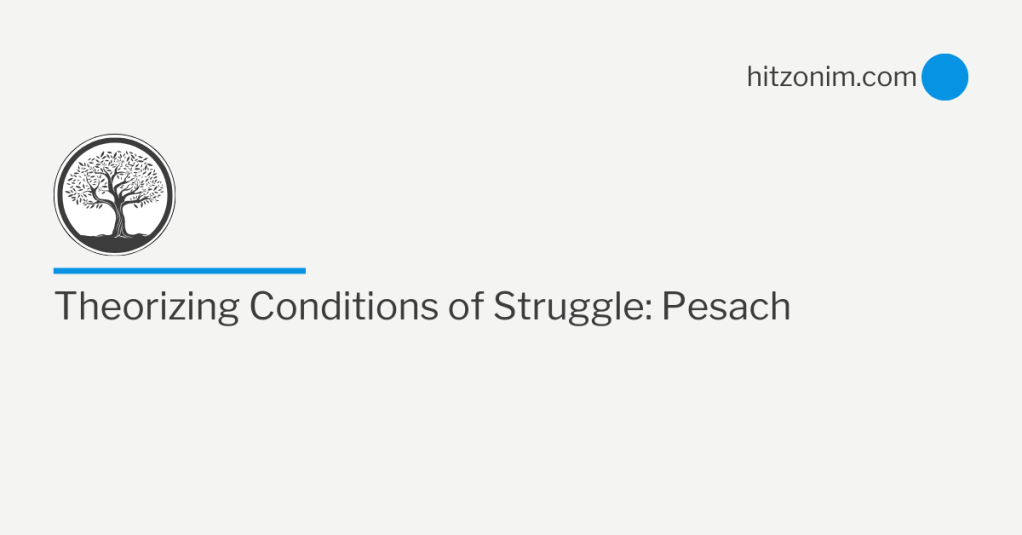This post was originally planned for Tuesday, April 9 2024, with a focus on humanist values that arise during the Passover festival. Instead, this essay took on a more current affairs vibe, which I don’t think is inappropriate. This month we’re writing mostly Passover themed posts. You can view the 2024 April schedule here. If you enjoy the content here, consider sharing with your network!
I was reading an article from September 2022 published in the outlet, +972, a nonprofit magazine run by a group of Palestinian and Israeli journalists whose name is derived from the telephone country code that can be used to dial throughout Israel-Palestine. +972 is “committed to equity, justice, and freedom of information.” In this particular piece, the struggle for liberation in Palestine was compared and contrasted with the struggle for liberation for Black South Africans:
Of most interest are the ways in which they theorized the conditions of their struggles, identified potential allies and actual enemies, defined strategies and solutions, and confronted oppression creatively by formulating principled positions and practical programs of action.
+972
Of course, there is value in pausing to note that the premise of such comparison is the thrust of apartheid policies that yoke the countries together, a history that we see reflected in the case brought to the International Court of Justice by South Africa against Israel, the former accusing the latter of committing a genocide against Palestinians. Noting that the article I am referencing ran in September 2022, and not, say, following October 2023, I mean first to remind us that the struggle for Palestinian human rights is not new. While September 2022 isn’t history, these conversations long predate the current war and mass slaughtering of more than 30,000 people.
The scale of death is unimaginable.
And even after the war ends, indirect deaths from destroyed infrastructure, hospitals, housing, and places of worship destroyed, food crises, virus and disease, and the collapsed education system will affect people for years. Decades? Generations? It is hard to imagine a future that does not face an intensification of resistance, even armed resistance, owing to the inhumane mistreatment of a population. It’s for that reason that striving toward and achieving Palestinian human rights is the only pathway toward safety and liberation for all–Palestinians and Israelis, Arabs and Jews, Christians, Muslims. Only after a pathway toward sovereignty, security, and self-determination is made available, or meaningful steps taken to diplomatically negotiate toward that end, can peace be achieved. The first step is an immediate and permanent ceasefire and the full release of all remaining hostages. These commitments travel together.
As this article argues:
How can anyone imagine that hostages can be released without a full cease-fire in place? How dare they even suggest a brief cease-fire only to release the hostages, followed by resumption of bombing? A full cease-fire must begin as soon as it possibly can, so that not only will those hostages who are still alive come home, and the bombings end, but also so some wise and imaginative minds can begin to think about what follows.
In These Times
However unjustified are terror acts carried out by any state or non-state actor, it is the responsibility of who wields the greater power to be wise in its restraint. State-sanctioned power must certainly abide by national and international rule of law. For a state to fail to follow the rule of law to which it is accountable is for a state to delegitimize itself, because it is ultimately the fair and full participation in the rule of law that any authority rests. The alternative is a strong man: Putin, Netanyahu, Erdoğan, Bolsonaro, Trump; these leaders are known for democratic backsliding, but we also must confront the reality that the Western world continues to fund and arm Israel without condition; though, a shift is apparent in Biden’s strategy, beginning to discuss possible conditions on aid and critiquing military action.
Passover is about liberation, freedom, dignity, and hope. These are the values we have chosen to theorize the conditions of our struggle, and crucially, when we are not under the boot of oppression, we must work to protect oppressed groups while they theorize theirs.
You shall not oppress a stranger, for you know the feelings of the stranger, having yourselves been strangers in the land of Egypt.
Exodus 23.9
Pesach is deliverance through the outstretched hand of the Holy One to bring us out from under bondage and enslavement at the hands of a mighty empire that we once served but came to oppress us. In the striving for our freedom, plagues of destruction are wrought and the Egyptians beg us to flee. The narrative is straightforwardly liberatory and violent without comparison. We are both the oppressed and the oppressor by the end. Recently, we encountered similar themes in the story of Esther that frame the Purim holiday. There, after facing existential threat, in a plot twist, the tables turn, and the story devolves into a revenge fantasy.
These stories must be dealt with, and it’s my general sense of permissiveness with respect to our texts that they belong to no one other than whatever interpretive community is dealing with them at that moment, and for this moment, that is us. The pattern to recognize is a threat that those under oppression, occupation, restricted movement, or loss of freedom will revolt and become the oppressor, or depending on who’s telling the story, “the victor.” Maybe it is the resistance stories in our own tradition that fears the stories of liberation told when we face our own misuses of power. When it is our hearts, like Pharaoh’s, that have been hardened.
Passover is rooted in twin commitments: liberation and accountability for our actions. Pesach is the celebration of freedom, dignity, and the hoped for symbolism of a next year when we understand that our lives are linked and one of us cannot experience freedom, safety, and security, unless we all do.


Leave a comment